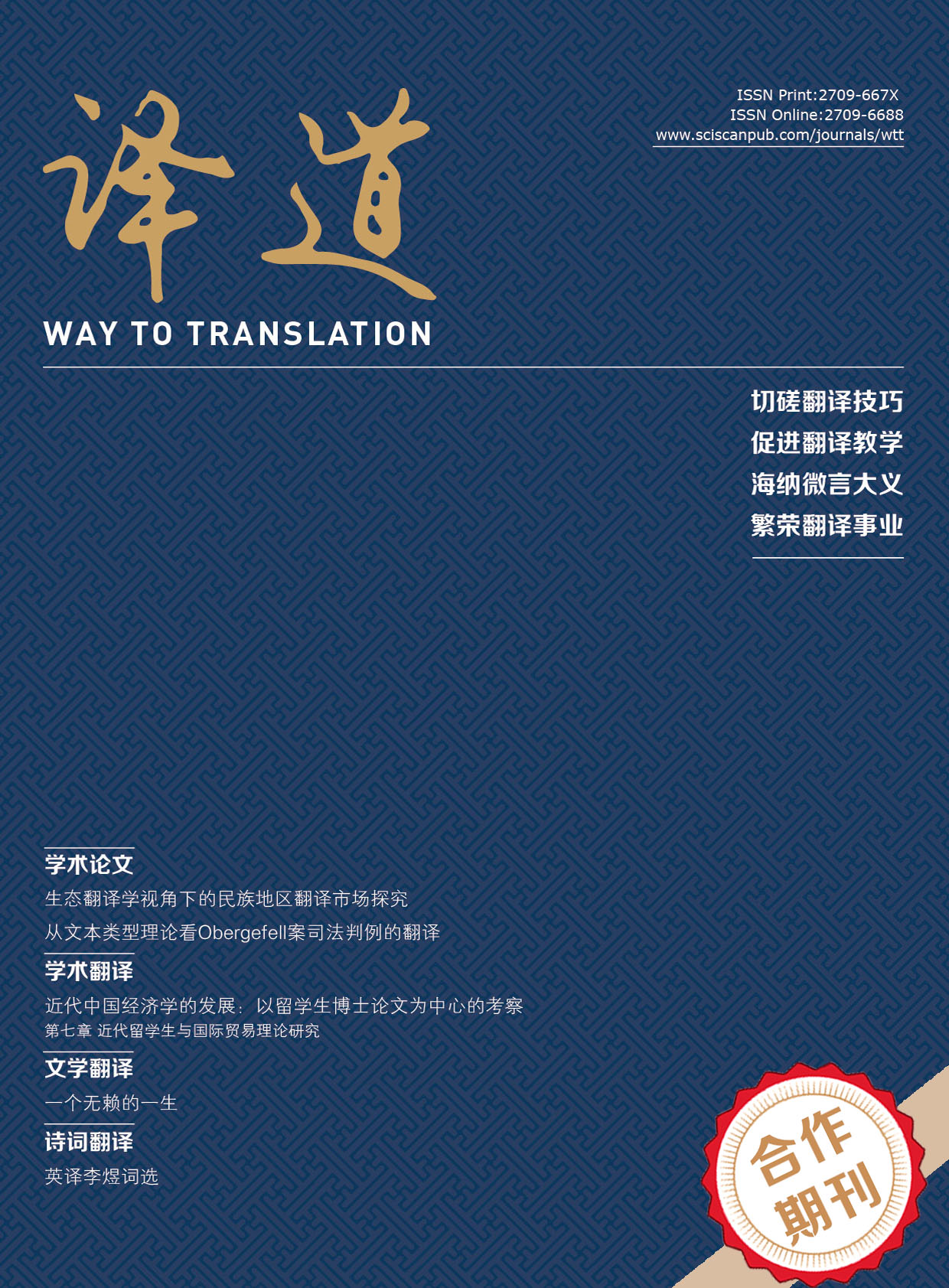Way to Translation
ISSN Print: 2709-667X
ISSN Online: 2709-6688
Contact Editorial Office
Subscribe to the latest published information from SCISCAN
试论清末民初翻译对中国语言及文化的影响 ——以英语诗歌汉译为例
The Influence of Translation on Chinese Language and Culture in Late Qing Dynasty and Early Republic of China —A Case Study on English Poetry Translation
- Authors: 谷莹莹
-
Information:
武汉纺织大学外国语学院,武汉
-
Keywords:
The Late Qing Dynasty and Early Republic of China; Poetry translation; Language; Culture清末民初; 诗歌翻译; 语言; 文化
- Abstract: Translation, an intercultural communicative activity, is closely related to language and culture. At the end of the Qing Dynasty and the beginning of the Republic of China, the national condition characterized with domestic troubles and foreign invasions promotes China to usher in another climax of translation. English poetry translation in this period brings the form of free verse into China, enriching the poetic forms of Chinese poetry. The use of repetition and exclamation marks makes the emotional manifestation of Chinese poetry more direct. The translation also enlarges the contents, themes and schools of Chinese poetry. 翻译作为一种跨文化交流活动,与语言、文化有着密不可分的关系。清末民初时期内忧外患的国情推动中国翻译活动迎来了又一次高潮。清末民初英语诗歌汉译,将自由诗引入中国诗歌,丰富了诗歌形式,重复、感叹号的使用让中国诗歌情绪的彰显更直接,还扩充了诗歌内容、题材,推动了诗歌流派的多样化。
- DOI: https://doi.org/10.35534/wtt.0102006
- Cite: -
















